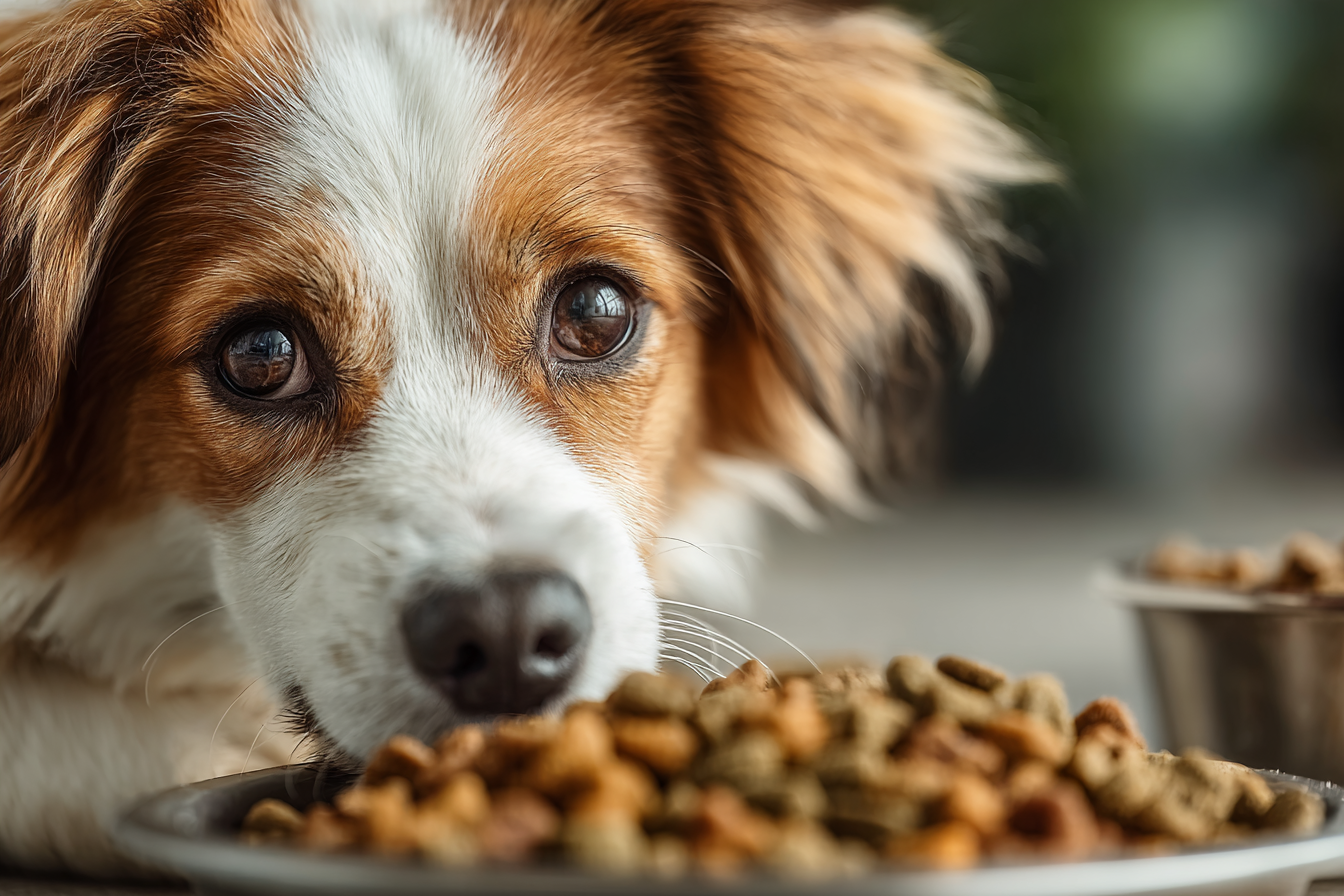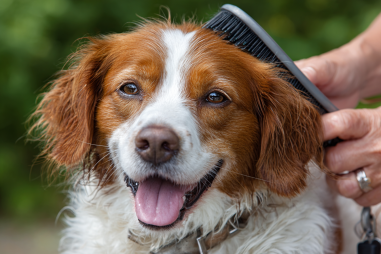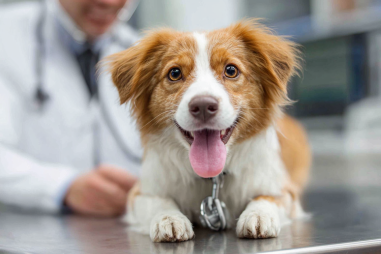The Brittany is a lively and athletic dog breed known for its boundless energy and affectionate nature. To keep your Brittany in peak condition, proper diet and nutrition are essential. Feeding your dog the right balance of nutrients not only supports its active lifestyle but also promotes long-term health and well-being. In this guide, we’ll explore the best feeding practices, suitable foods, and important tips tailored specifically for your energetic Brittany companion.
Nutritional Needs of a Brittany
Brittanys are medium-sized sporting dogs with an energetic disposition requiring a well-rounded and balanced diet. Their nutritional needs revolve around supporting their muscle strength, endurance, and overall vitality. Protein is crucial to build and maintain lean muscle mass, while fats serve as an efficient source of energy for their active days. Carbohydrates provide additional energy, but should come from high-quality sources to avoid unnecessary weight gain.
Besides macronutrients, a Brittany’s diet should include essential vitamins and minerals that contribute to healthy skin and coat, strong bones, and a robust immune system. Omega-3 fatty acids, for example, support joint health and reduce inflammation, which is valuable for an active dog prone to joint strain. Antioxidants promote cellular health and help protect against oxidative stress. Adequate hydration is also vital to keep your dog performing at its best.
Recommended Dog Food Types
Choosing the right type of dog food for your Brittany can be overwhelming with so many options available. Here are a few types that work well:
- High-quality commercial kibble: Opt for premium brands that list real meat as the first ingredient and avoid fillers like corn, wheat, and soy. Look for formulas specifically designed for active or sporting breeds to meet your Brittany’s increased energy demands.
- Raw diets: Many owners prefer a raw food diet for its natural ingredients and high protein content. If considering this option, ensure the diet is well-balanced and consult your veterinarian or a canine nutritionist to avoid any nutritional deficiencies.
- Wet or canned food: These provide additional moisture and can be mixed with kibble to enhance palatability and hydration, especially in warmer climates or for dogs who don’t drink enough water.
- Home-cooked meals: Some owners prepare homemade food using fresh ingredients. This method requires careful planning to include all essential nutrients but can be tailored to suit your dog’s preferences and sensitivities.
Portion Sizing and Feeding Frequency
One of the keys to maintaining your Brittany’s optimal health is establishing proper portion sizes and feeding schedules. Since Brittanys have high energy levels, they generally require more calories than less active breeds, but individual needs will vary based on age, weight, metabolism, and activity level.
As a general guideline, adult Brittanys weigh between 30 to 40 pounds and may consume roughly 1,000 to 1,400 calories per day. Puppies, pregnant, or nursing females will require more calories and nutrient-dense food to support growth and reproduction.
Feeding your Brittany twice a day—once in the morning and once in the evening—helps maintain energy levels and supports digestion. For puppies, more frequent, smaller meals (three to four times daily) are beneficial until they mature.
Always adjust serving sizes based on your dog’s body condition and activity. A dog showing signs of weight gain might need reduced portions or more exercise, while a dog losing weight or lacking energy may need an increase.
Treats and Supplements
Treats can be a great way to reward and train your Brittany but should be given in moderation to prevent excess calorie intake. Opt for healthy treat options such as small pieces of cooked chicken, carrots, apples (without seeds), or commercially available low-calorie dog treats.
Supplements may also play an important role in supporting your Brittany’s health, especially for joint care and coat condition:
- Glucosamine and chondroitin: These supplements support joint health and can help maintain mobility, especially as your Brittany ages.
- Fish oil (Omega-3 fatty acids): Promotes healthy skin and a shiny coat, while also reducing inflammation.
- Probiotics: Enhance digestive health and nutrient absorption, which aids overall wellness.
Always consult your veterinarian before adding any supplements to ensure they are necessary and safe for your dog’s specific needs.
Foods to Avoid
Keeping harmful foods away from your Brittany is just as important as providing nutritious meals. Watch out for these common foods that can be toxic or damaging:
- Chocolate: Contains theobromine which is toxic to dogs and can cause severe health issues.
- Grapes and raisins: Can cause kidney failure even in small amounts.
- Onions and garlic: These can lead to gastrointestinal upset and damage red blood cells.
- Alcohol: Even small quantities are dangerous and can be fatal.
- Artificial sweeteners (such as xylitol): Found in sugar-free gums and candies, xylitol can cause hypoglycemia and liver failure.
- Excessive fatty or salty foods: Can lead to pancreatitis and obesity.
Additionally, avoid giving your Brittany cooked bones or any small items that pose a choking hazard.
Monitoring Weight and Health via Diet
Keeping a close eye on your Brittany’s weight and overall health is vital to ensure that their diet continues to meet their needs. Regularly check your dog’s body condition by feeling along the ribs—these should be noticeable but not overly prominent—and observe their waistline from above.
If your Brittany starts gaining excess weight, it might indicate overfeeding, too many treats, or insufficient exercise. Conversely, rapid weight loss or a dull coat can signal nutrient deficiencies, illness, or parasites and should prompt a veterinary visit.
Routine veterinary check-ups combined with careful diet management will help you catch any potential health issues early and keep your energetic Brittany healthy and happy for years to come.
By tailoring your Brittany’s diet to its active lifestyle, providing balanced nutrition, and monitoring its health regularly, you can help your cherished companion thrive at every stage of life. With the right food choices and feeding routine, your Brittany will continue to be the spirited and loving friend you’ve come to adore.







